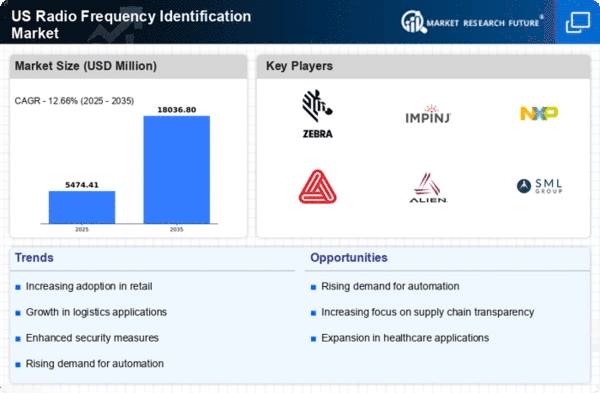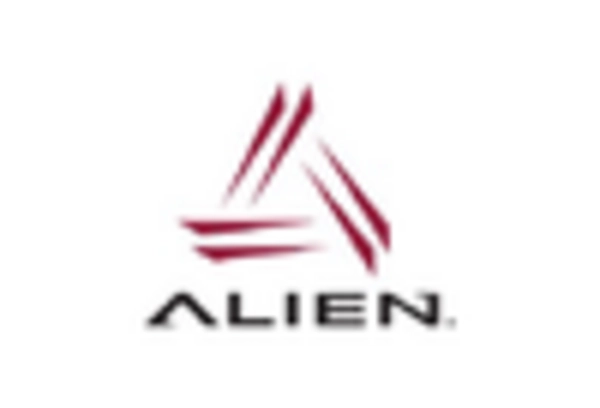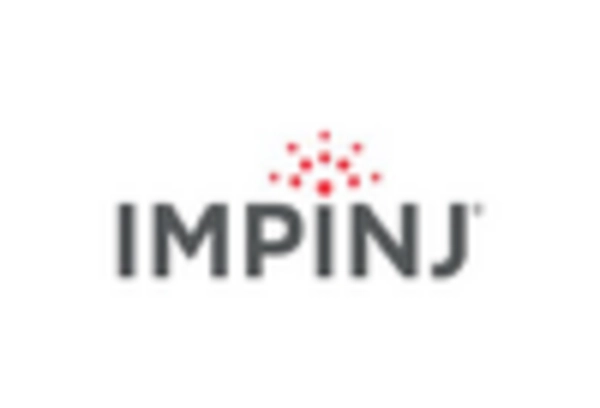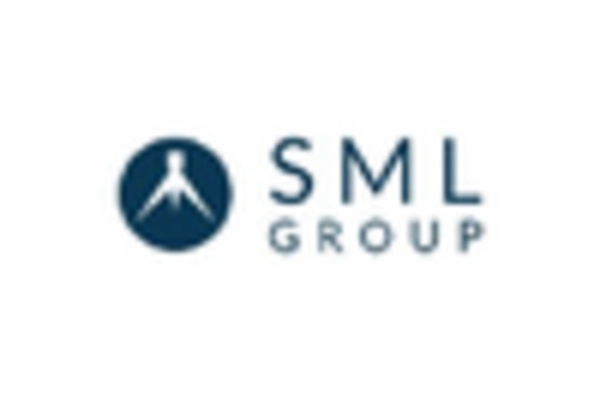Rising Security Concerns
The radio frequency-identification market is increasingly shaped by rising security concerns among businesses and consumers. As RFID technology becomes more prevalent, the potential for unauthorized access and data breaches has prompted organizations to seek more secure solutions. This has led to the development of advanced encryption methods and secure RFID tags that protect sensitive information. In 2025, it is anticipated that the market for secure RFID solutions will account for a substantial portion of the overall radio frequency-identification market, as companies prioritize data security in their operational strategies. This focus on security not only enhances consumer trust but also encourages wider adoption of RFID technology across various sectors.
Technological Advancements in RFID
The radio frequency-identification market is experiencing a surge in technological advancements that enhance the efficiency and effectiveness of RFID systems. Innovations such as improved chip designs, enhanced read ranges, and miniaturization of components are driving adoption across various sectors. For instance, the integration of Internet of Things (IoT) capabilities with RFID technology is enabling real-time data collection and analysis, which is crucial for inventory management and supply chain optimization. As of 2025, the market is projected to reach approximately $30 billion, reflecting a compound annual growth rate (CAGR) of around 10%. This growth is indicative of the increasing reliance on RFID solutions to streamline operations and reduce costs in industries such as logistics and manufacturing.
Increased Focus on Asset Management
The radio frequency-identification market is benefiting from an increased focus on asset management across various industries. Organizations are leveraging RFID technology to monitor and manage their assets more effectively, leading to improved utilization and reduced losses. This trend is particularly pronounced in sectors such as healthcare, where tracking medical equipment and supplies is critical for operational efficiency. The market for RFID in asset management is projected to grow at a CAGR of 12% through 2025, driven by the need for real-time visibility and accountability. As companies seek to optimize their asset utilization, the adoption of RFID solutions is likely to expand, further solidifying its role in modern asset management strategies.
Expansion of E-commerce and Online Retail
The radio frequency-identification market is experiencing growth due to the expansion of e-commerce and online retail. As more consumers turn to online shopping, retailers are increasingly adopting RFID technology to enhance inventory accuracy and streamline fulfillment processes. RFID systems enable real-time tracking of products, which is essential for meeting customer expectations regarding delivery times and order accuracy. By 2025, it is projected that the integration of RFID in e-commerce could lead to a 15% increase in operational efficiency for online retailers. This trend underscores the importance of RFID technology in adapting to the evolving landscape of retail and meeting the demands of a digital marketplace.
Growing Demand for Supply Chain Efficiency
The radio frequency-identification market is significantly influenced by the growing demand for supply chain efficiency. Companies are increasingly recognizing the value of RFID technology in tracking assets, managing inventory, and improving overall operational efficiency. By implementing RFID systems, businesses can reduce errors associated with manual tracking and enhance visibility throughout the supply chain. In 2025, it is estimated that RFID adoption could lead to a reduction in inventory carrying costs by up to 20%, thereby improving profit margins. This trend is particularly evident in sectors such as retail and logistics, where timely and accurate data is essential for maintaining competitive advantage.














